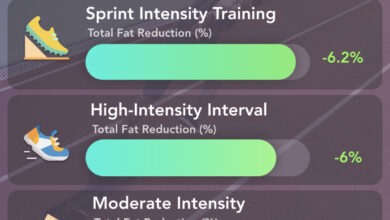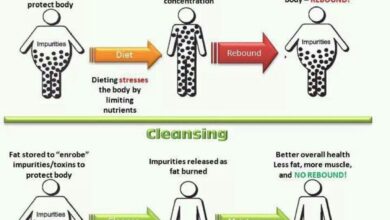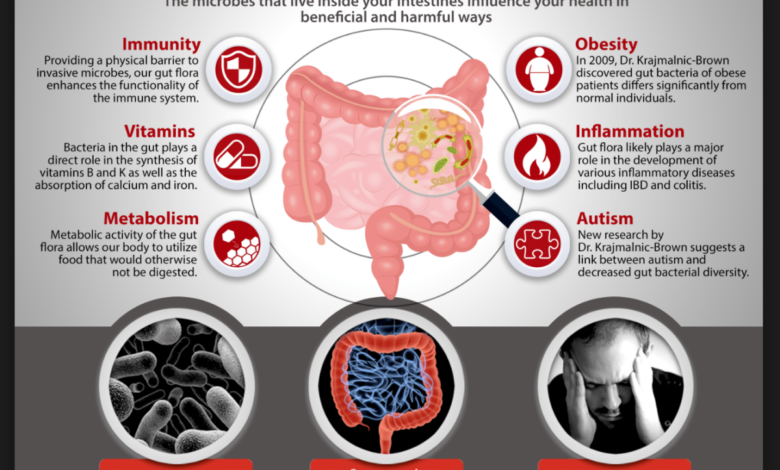
Gut Microbiome and Weight Loss: Your Inner Ecosystems Role
Gut microbiome and weight loss – these two concepts are increasingly intertwined in the world of health and wellness. The trillions of bacteria residing in our gut aren’t just passive bystanders; they play a surprisingly active role in how our bodies manage energy, appetite, and even fat storage.
It’s a fascinating world of microscopic activity that directly impacts our weight, and understanding this connection could be the key to unlocking new strategies for weight management.
Imagine a bustling city within your intestines, teeming with microscopic residents. These bacteria, collectively known as the gut microbiome, are far from mere passengers. They influence digestion, immunity, and even the way we process food. Certain bacteria are adept at extracting energy from our meals, while others may influence our appetite hormones.
This intricate interplay between our gut bacteria and our bodies is a captivating field of research, offering exciting possibilities for personalized weight management approaches.
The Gut Microbiome and Weight Management
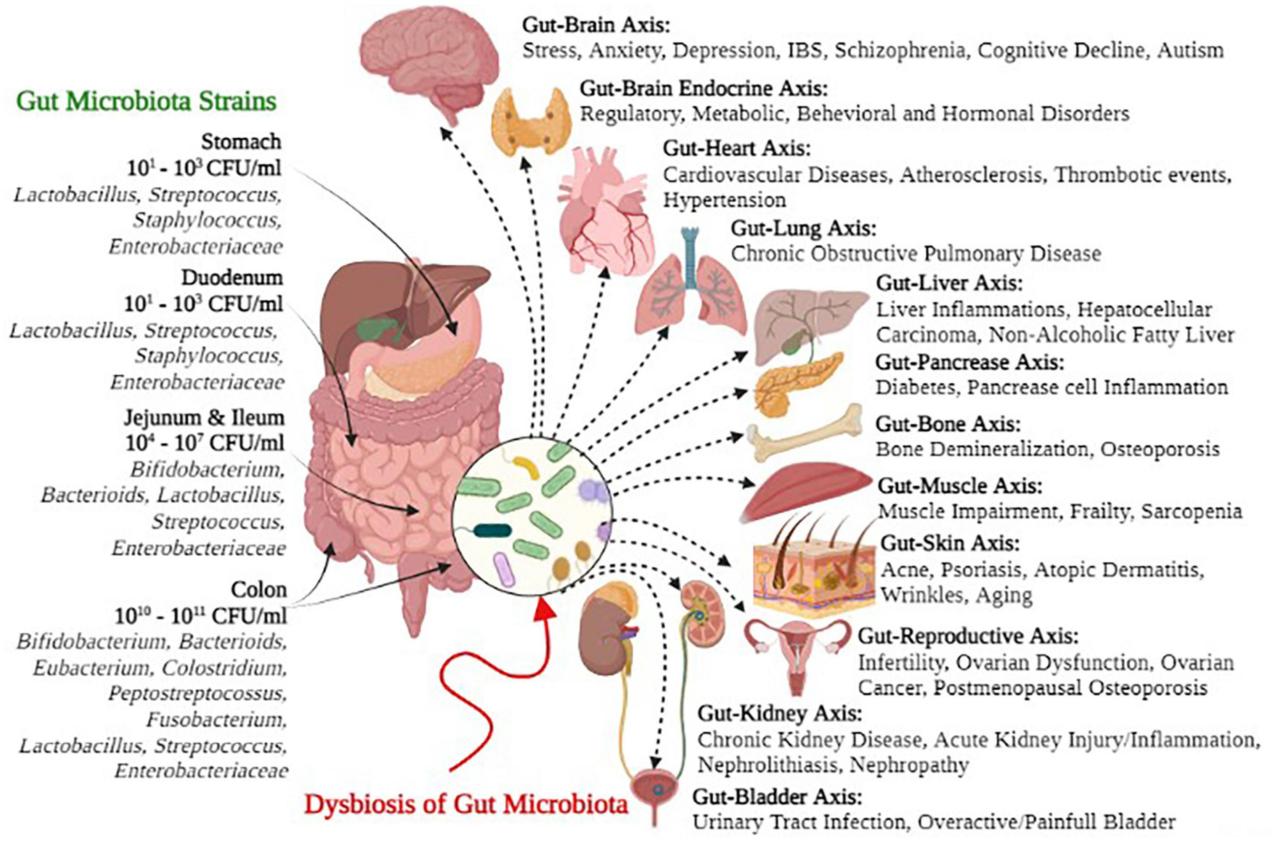
The intricate ecosystem of microorganisms residing in our gut, known as the gut microbiome, plays a surprisingly significant role in our overall health, including weight management. This microbial community influences various aspects of our metabolism, impacting energy extraction, appetite regulation, and fat storage.
Understanding this complex interplay between gut bacteria and weight regulation is crucial for developing effective strategies for weight loss and maintaining a healthy weight.
Gut Microbiome Composition and Body Weight
The composition of our gut microbiome can significantly influence our body weight. Studies have revealed a strong correlation between specific gut bacteria and body mass index (BMI). For instance, individuals with a higher abundance of certain bacterial species, such as Firmicutes, are often associated with higher BMI, while individuals with a higher abundance of Bacteroidetestend to have lower BMI.
This suggests that the relative proportions of these bacterial groups could contribute to weight differences.
Gut Bacteria and Energy Harvesting
Gut bacteria play a crucial role in energy harvesting from our diet. They break down complex carbohydrates and fibers that our bodies cannot digest on their own, releasing short-chain fatty acids (SCFAs) like acetate, propionate, and butyrate. These SCFAs are absorbed into the bloodstream and serve as an energy source for our cells.
Some gut bacteria are more efficient at extracting energy from food, potentially leading to increased energy intake and weight gain.
A healthy gut microbiome is crucial for weight management, and incorporating diverse, nutrient-rich foods is key. One delicious way to support both your gut health and your waistline is by enjoying sustainable seafood sushi bowls. These bowls are packed with omega-3 fatty acids, which have been shown to promote a balanced gut microbiome and aid in weight loss.
Gut Bacteria and Appetite Regulation
The gut microbiome also influences our appetite and food cravings. It communicates with our brain through various pathways, including the vagus nerve and the production of hormones like ghrelin and leptin. These signals influence our feelings of hunger and fullness, ultimately affecting our food intake.
For example, certain gut bacteria can produce compounds that stimulate the release of ghrelin, a hormone that increases appetite.
Gut Bacteria and Fat Storage
The composition of our gut microbiome can impact how our bodies store fat. Some gut bacteria have been linked to increased fat storage, while others promote fat burning. For example, Akkermansia muciniphila, a gut bacterium known to be beneficial for metabolic health, has been shown to reduce fat accumulation in the liver and adipose tissue.
Studies on Gut Microbiome and Weight Loss
Several studies have demonstrated the impact of specific gut bacteria on weight loss. For example, a study published in the journal Naturefound that transplanting fecal microbiota from lean donors into obese individuals led to significant weight loss and improvements in metabolic health.
This suggests that manipulating the gut microbiome could be a promising strategy for weight management.
Examples of Gut Bacteria and Weight Loss
Akkermansia muciniphila As mentioned earlier, this bacterium has been linked to reduced fat storage and improved metabolic health. Studies have shown that increasing its abundance through dietary interventions or probiotics can contribute to weight loss.
Bacteroides fragilis This bacterium has been shown to improve insulin sensitivity and reduce inflammation, both of which are important factors in weight management.
Faecalibacterium prausnitzii This bacterium produces butyrate, a SCFA that has been linked to reduced appetite and improved metabolic health.
Strategies to Modulate the Gut Microbiome for Weight Loss: Gut Microbiome And Weight Loss
The gut microbiome plays a crucial role in various aspects of human health, including weight management. Understanding the intricate interplay between the gut microbiota and weight regulation can pave the way for effective strategies to promote weight loss. This section delves into various approaches to modulate the gut microbiome for achieving a healthier weight.
We all know a healthy gut microbiome is key for weight management, and a diverse diet is essential for cultivating those beneficial bacteria. One delicious way to support your gut health is with a hearty bowl of butternut squash black bean chili.
This recipe is packed with fiber and prebiotics, which are crucial for feeding the good bacteria in your gut. So, next time you’re looking for a satisfying and gut-friendly meal, give this chili a try!
Dietary Interventions to Promote a Healthy Gut Microbiome
Dietary interventions can significantly influence the composition and function of the gut microbiome. A balanced diet rich in diverse nutrients can foster a healthy gut environment, contributing to weight management.
| Dietary Intervention | Description | Impact on Gut Microbiome | Weight Loss Benefits |
|---|---|---|---|
| High-Fiber Diet | Consumption of foods rich in soluble and insoluble fiber, such as fruits, vegetables, legumes, and whole grains. | Promotes the growth of beneficial bacteria, such as Bacteroides and Prevotella, which ferment fiber into short-chain fatty acids (SCFAs). | Increased satiety, reduced calorie intake, and improved insulin sensitivity. |
| Mediterranean Diet | Emphasis on fruits, vegetables, whole grains, olive oil, fish, and nuts, with moderate consumption of red meat and dairy products. | Enhances the diversity and abundance of beneficial gut bacteria, leading to a more balanced microbiome. | Reduced risk of obesity, type 2 diabetes, and cardiovascular diseases. |
| Fermented Foods | Inclusion of fermented foods like yogurt, kefir, kimchi, and sauerkraut, which are rich in probiotics. | Introduces beneficial bacteria into the gut, promoting a healthy microbiome. | Improved digestion, reduced inflammation, and potential for weight loss. |
| Prebiotic-Rich Foods | Consumption of foods containing prebiotics, such as onions, garlic, asparagus, and bananas, which act as food for beneficial bacteria. | Stimulates the growth and activity of beneficial gut bacteria. | Improved gut health, reduced inflammation, and potential for weight management. |
Lifestyle Changes to Enhance Gut Microbiome Composition
Beyond dietary interventions, adopting healthy lifestyle habits can significantly contribute to a favorable gut microbiome composition. These changes promote overall well-being and can support weight management efforts.
- Regular Exercise:Physical activity can positively influence gut microbiome composition by promoting the growth of beneficial bacteria and reducing inflammation.
- Adequate Sleep:Sufficient sleep is crucial for maintaining a healthy gut microbiome. Sleep deprivation can disrupt the balance of gut bacteria, potentially leading to weight gain.
- Stress Management:Chronic stress can negatively impact the gut microbiome, leading to an imbalance in bacterial species. Engaging in stress-reducing activities, such as yoga, meditation, or spending time in nature, can help maintain a healthy gut environment.
- Limit Alcohol Consumption:Excessive alcohol intake can disrupt the gut microbiome, potentially leading to inflammation and weight gain.
- Avoid Smoking:Smoking has been linked to alterations in gut microbiome composition, potentially contributing to weight gain and other health issues.
Probiotics, Prebiotics, and Fecal Microbiota Transplantation for Weight Loss
Probiotics, prebiotics, and fecal microbiota transplantation (FMT) are emerging approaches to modulate the gut microbiome for weight loss. However, it’s crucial to understand their potential benefits and drawbacks.
- Probiotics:Probiotics are live microorganisms that, when consumed in adequate amounts, provide health benefits to the host. They can introduce beneficial bacteria to the gut, potentially improving gut health and contributing to weight loss. However, the effectiveness of probiotics for weight loss is still under investigation, and further research is needed to determine optimal strains and dosages.
- Prebiotics:Prebiotics are non-digestible food ingredients that promote the growth of beneficial bacteria in the gut. They act as food for these bacteria, supporting their growth and activity. Prebiotics can contribute to a healthier gut environment, potentially leading to weight management.
However, the specific mechanisms and effectiveness of prebiotics for weight loss are still being explored.
- Fecal Microbiota Transplantation (FMT):FMT involves transferring fecal matter from a healthy donor to the recipient’s gut. This procedure aims to restore a healthy gut microbiome in individuals with disrupted gut flora. While FMT has shown promise in treating conditions like recurrent Clostridium difficile infection, its role in weight loss is still under investigation.
Further research is needed to determine the safety and efficacy of FMT for weight management.
Gut Microbiome-Targeted Therapies for Obesity
The intricate relationship between the gut microbiome and weight management has fueled an exciting new frontier in obesity treatment: microbiome-targeted therapies. This approach aims to manipulate the composition and function of the gut microbiota to promote weight loss and improve metabolic health.
Emerging research is revealing the potential of these therapies, paving the way for novel strategies to combat obesity.
Microbiome-Based Therapies for Weight Loss
Harnessing the power of the gut microbiome for weight management involves several promising strategies. These strategies aim to either introduce beneficial bacteria or modify the existing microbiome to achieve weight loss goals.
- Fecal Microbiota Transplantation (FMT):FMT involves transferring fecal matter from a healthy donor to the recipient’s gut, aiming to introduce a diverse and beneficial microbial community. Studies have shown that FMT can improve metabolic parameters, including weight loss, in individuals with obesity.
For example, a 2018 study published in the journal -Obesity* found that FMT from lean donors to obese individuals resulted in significant weight loss and improvements in insulin sensitivity.
- Probiotics:Probiotics are live microorganisms that, when consumed in adequate amounts, provide a health benefit to the host. Specific probiotic strains have shown potential for weight management, particularly those belonging to the genera -Lactobacillus* and -Bifidobacterium*. For instance, -Lactobacillus gasseri* has been found to reduce body weight and fat mass in human studies.
- Prebiotics:Prebiotics are non-digestible food ingredients that promote the growth of beneficial bacteria in the gut. They act as a food source for the gut microbiota, encouraging the proliferation of specific strains that can contribute to weight loss. One example is inulin, a type of prebiotic found in foods like onions, garlic, and asparagus.
Studies have suggested that inulin consumption can promote satiety and reduce calorie intake, leading to weight reduction.
- Postbiotics:Postbiotics are inactive microbial components, such as cell lysates, enzymes, and metabolites, that exert beneficial effects on the host. Emerging research suggests that postbiotics, particularly short-chain fatty acids (SCFAs) produced by gut bacteria, can influence weight management. For example, butyrate, a major SCFA, has been shown to reduce appetite and increase energy expenditure in animal studies.
Clinical Trials Investigating Gut Microbiome-Targeted Therapies
The potential of microbiome-targeted therapies for weight loss is being actively investigated in ongoing clinical trials. These trials are exploring the efficacy and safety of different interventions, including:
- FMT trials:Several clinical trials are evaluating the effectiveness of FMT in obese individuals. For example, the “Fecal Microbiota Transplantation for Obesity” trial (NCT03357588) is investigating the effects of FMT from lean donors on weight loss, metabolic parameters, and gut microbiome composition in adults with obesity.
Maintaining a healthy gut microbiome is crucial for weight management, and fueling it with nutrient-rich foods is key. A delicious and gut-friendly option is this shrimp fried quinoa with egg whites , packed with protein and fiber. Quinoa is a great source of prebiotics, which feed the good bacteria in your gut, while shrimp provides lean protein and omega-3 fatty acids.
This dish helps support a balanced gut microbiome, contributing to a healthy weight journey.
- Probiotic trials:Numerous trials are assessing the impact of specific probiotic strains on weight management. One example is the “Effect of Lactobacillus gasseri SBT2055 on Body Weight and Fat Mass in Overweight and Obese Adults” trial (NCT01981193), which evaluated the efficacy of -Lactobacillus gasseri* SBT2055 in reducing body weight and fat mass in overweight and obese individuals.
- Prebiotic trials:Clinical trials are exploring the role of prebiotics in weight management. For instance, the “Effects of Inulin on Body Weight and Fat Mass in Obese Adults” trial (NCT01967761) investigated the impact of inulin supplementation on weight loss, body composition, and gut microbiota composition in obese individuals.
- Postbiotic trials:Studies are examining the potential of postbiotics, particularly SCFAs, for weight management. One example is the “Effects of Butyrate Supplementation on Body Weight and Metabolic Parameters in Obese Adults” trial (NCT04321565), which is investigating the effects of butyrate supplementation on weight loss, insulin sensitivity, and gut microbiome composition in obese individuals.
Potential of Specific Bacterial Strains or Metabolites
Research is shedding light on the specific bacterial strains and metabolites that play a role in weight management. These findings are paving the way for the development of targeted therapies aimed at manipulating the gut microbiome for weight loss.
- *Akkermansia muciniphila*:This bacterium has been linked to improved metabolic health and weight loss. Studies have shown that -Akkermansia muciniphila* can increase insulin sensitivity, reduce inflammation, and promote satiety.
- *Christensenella minuta*:This bacterium has been associated with a lean phenotype and improved metabolic parameters. Studies suggest that -Christensenella minuta* may contribute to weight loss by enhancing energy expenditure and reducing fat storage.
- Short-chain fatty acids (SCFAs):SCFAs, such as butyrate, propionate, and acetate, are produced by gut bacteria during the fermentation of dietary fiber. These metabolites have been shown to influence appetite, energy expenditure, and insulin sensitivity, potentially contributing to weight management.
Future Directions in Gut Microbiome Research
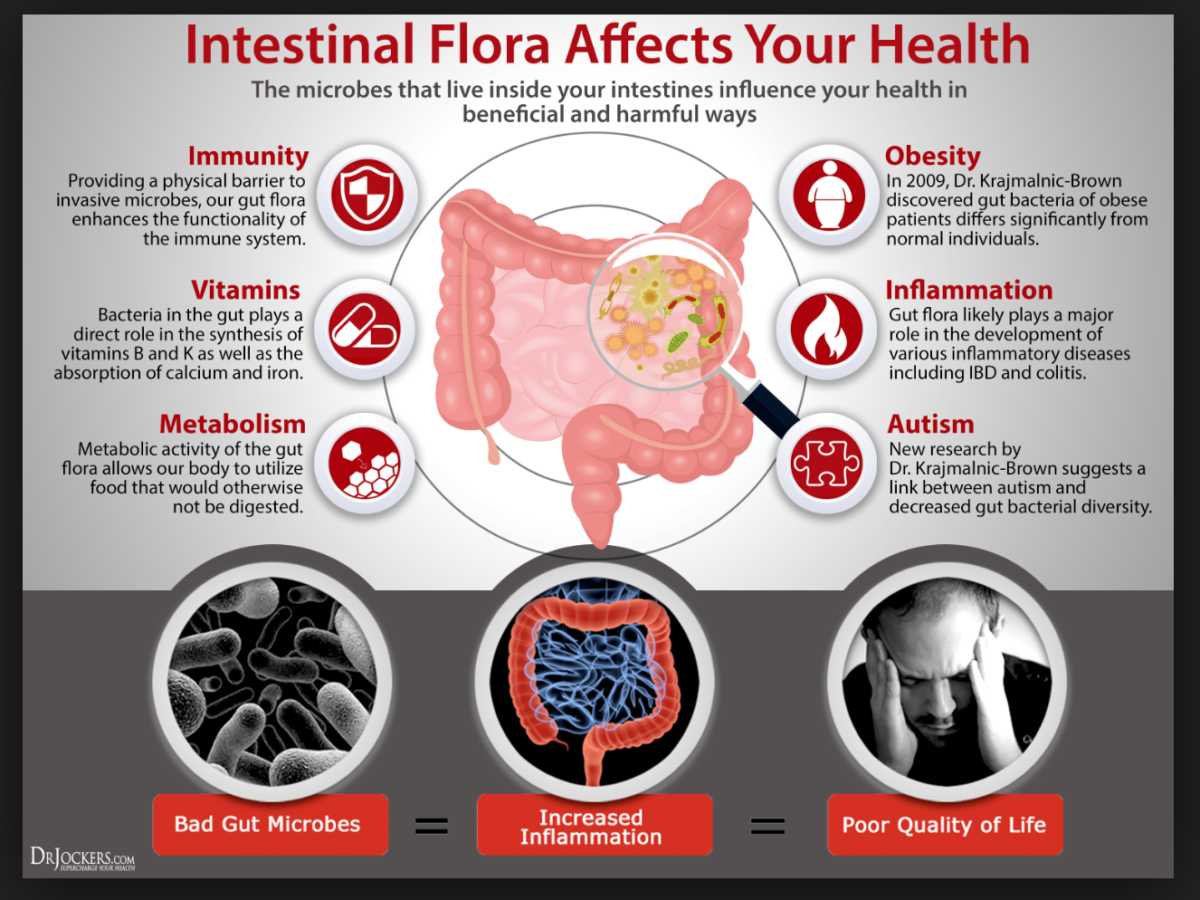
The field of gut microbiome research is rapidly evolving, and much remains to be discovered about its intricate relationship with weight management. While we’ve made significant strides in understanding the role of gut microbes in obesity, numerous questions remain unanswered, paving the way for exciting future research directions.
Unanswered Questions and Future Research Directions
The complexity of the gut microbiome and its interactions with human health presents a wealth of unanswered questions. Research in this area will continue to explore the following:
- Identifying Specific Microbial Species and Their Functions:While we know certain gut microbial compositions are associated with obesity, identifying specific species and their precise metabolic pathways involved in weight gain or loss remains a critical area of investigation. For example, research could focus on understanding how specific bacteria produce short-chain fatty acids (SCFAs) like butyrate, which have been linked to improved insulin sensitivity and reduced inflammation, potentially impacting weight management.
- Investigating the Role of Microbiome-Host Interactions:Understanding how the gut microbiome interacts with the host’s immune system, metabolism, and hormonal pathways is crucial. Research could explore how gut microbes influence the production of hormones like leptin and ghrelin, which play key roles in appetite regulation and energy expenditure.
This research could reveal new targets for therapeutic interventions.
- Exploring the Impact of Diet and Lifestyle on the Gut Microbiome:The gut microbiome is highly responsive to dietary and lifestyle changes. Future research will focus on understanding how different dietary patterns, including the Mediterranean diet, ketogenic diet, or intermittent fasting, influence gut microbial composition and impact weight management. This knowledge can inform personalized dietary recommendations for weight loss.
- Developing Novel Microbiome-Targeted Therapies:The potential of microbiome-targeted therapies for obesity is immense. Research is underway to develop prebiotics, probiotics, and fecal microbiota transplantation (FMT) to modulate the gut microbiome and promote weight loss. However, more research is needed to optimize these therapies and ensure their safety and efficacy.
Personalized Approaches to Gut Microbiome Modulation
The gut microbiome is highly individualized, with significant variations between individuals. Therefore, a one-size-fits-all approach to microbiome modulation for weight management is unlikely to be effective. Personalized approaches are essential, considering individual factors like genetics, lifestyle, and dietary habits.
- Gut Microbiome Profiling:Advanced sequencing technologies enable personalized gut microbiome profiling, identifying unique microbial compositions and metabolic pathways within individuals. This information can be used to tailor interventions, such as recommending specific dietary changes or probiotic supplements, to optimize gut health and weight management.
- Precision Nutrition:Precision nutrition utilizes personalized dietary recommendations based on individual gut microbiome profiles and metabolic responses. This approach aims to create a personalized dietary plan that promotes a healthy gut microbiome and supports weight loss goals.
- Gut Microbiome-Targeted Therapies:Personalized microbiome-targeted therapies could include specific probiotic strains or prebiotics designed to address individual gut microbiome imbalances. For example, individuals with a deficiency in butyrate-producing bacteria might benefit from a specific prebiotic that promotes the growth of these beneficial microbes.
The Importance of Ongoing Research, Gut microbiome and weight loss
The intricate interplay between the gut microbiome, metabolism, and obesity underscores the need for ongoing research to unravel this complex relationship. Continued investigation into the gut microbiome’s role in weight management will lead to the development of novel therapies and personalized interventions, ultimately improving the health and well-being of individuals struggling with obesity.
Wrap-Up
The gut microbiome is a powerful force in our quest for healthy weight. By nurturing a diverse and balanced community of gut bacteria, we can potentially optimize our bodies’ ability to manage energy, appetite, and fat storage. Whether it’s through dietary adjustments, lifestyle changes, or innovative therapies, understanding and harnessing the power of our inner ecosystem could be a game-changer in the fight against obesity.

